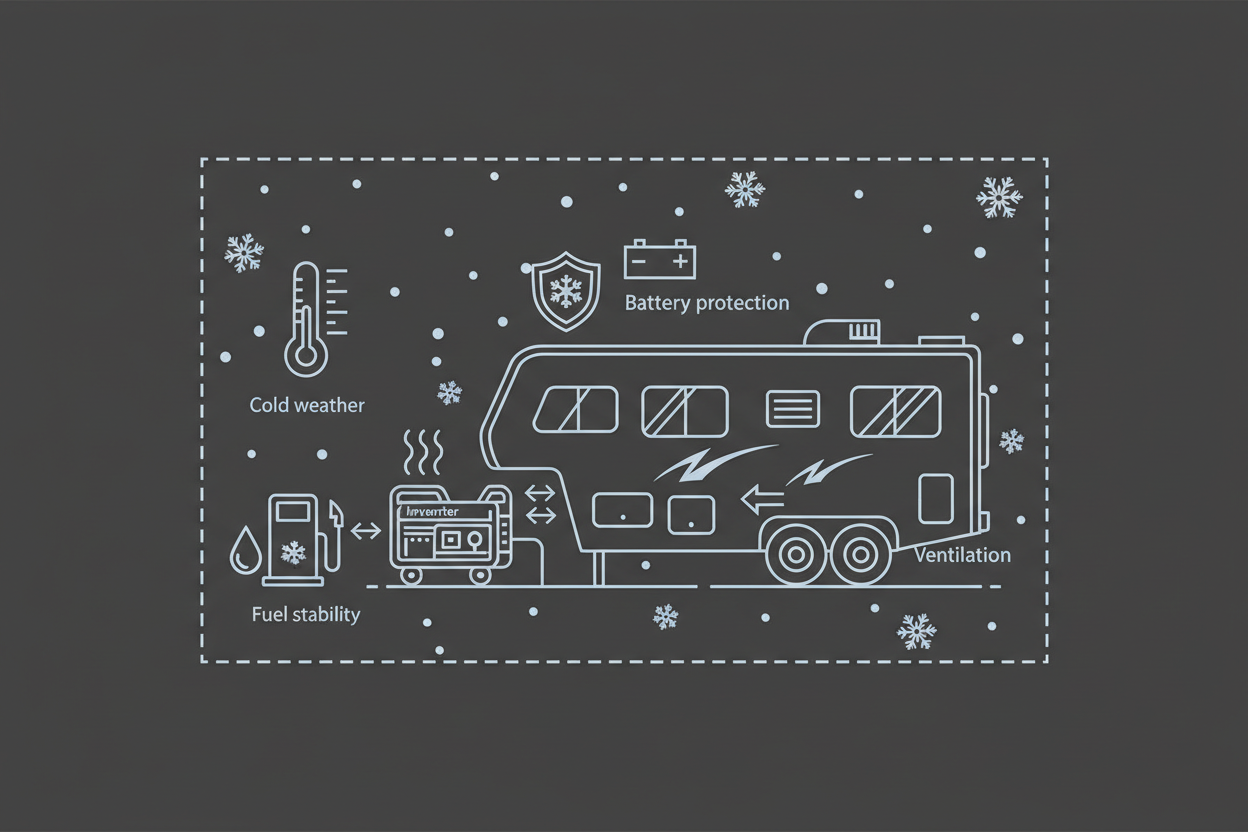RV Generator Use in Winter: Cold Weather Operation & Preparation
Winter camping demands reliable generator performance for heating, battery charging, and essential appliances. Cold temperatures affect fuel, oil, and starting systems, so proper preparation is important.

Cold Weather Effects on Generator Operation
Low temperatures reduce fuel vaporization, thicken engine oil, and lower battery cranking power. Generators may start slowly or stall during warm-up if not maintained correctly.
- Oil thickens and increases engine drag.
- Propane pressure drops significantly in cold weather.
- Batteries lose power faster in freezing temperatures.
Best Practices for Winter Generator Starting
- Use synthetic oil recommended for cold climates.
- Prime the fuel system before starting.
- Warm the generator in a sheltered location when possible.
- Allow the engine to run for several minutes before adding load.
Fuel Considerations for Winter RV Camping
Gasoline performs better in cold temperatures than propane due to reduced fuel pressure issues. Propane may require larger cylinders or regulators rated for low temperatures.
- Store propane cylinders above freezing when possible.
- Use fresh gasoline with stabilizer for longer trips.
- Monitor frost buildup on regulators.
Battery Charging in Winter
Charging efficiency decreases in cold weather. Running the generator longer helps maintain battery capacity for lighting, fans, and electronics.
- Minimize heavy loads during charging.
- Keep battery compartments insulated but ventilated.
- Check terminals for corrosion after cold nights.
Ventilation and Safety
Generators must operate outdoors even in winter. Never run a generator inside an RV compartment or enclosed shelter.
- Keep the exhaust pointed away from windows and vents.
- Clear snow around the generator to maintain airflow.
- Ensure RV CO detectors work properly.
Storage Tips After Winter Trips
- Drain old fuel if not using the generator for several weeks.
- Change oil after extended cold use.
- Store the generator in a dry, covered location.
Conclusion
With the right preparation, an inverter generator runs dependably even in freezing temperatures. Proper fuel management, oil selection, and ventilation ensure reliable winter power for RV travel and cold-weather camping.
